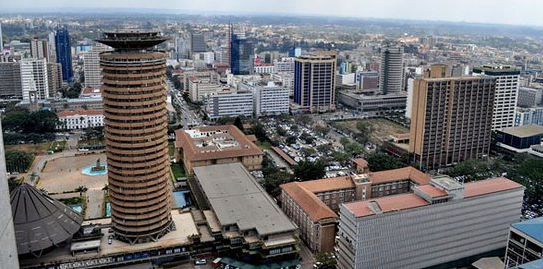Nairobi, the vibrant capital of Kenya, offers a unique blend of urban sophistication and natural beauty. From bustling markets and historical landmarks to stunning national parks and wildlife reserves, Nairobi promises an unforgettable experience. Proper pre-trip planning is essential to make the most of your visit. This comprehensive guide will help you navigate the essentials, ensuring a smooth and enjoyable journey to Nairobi.

(https://tanzania-specialist.com/national-parks/nairobi/)
1. Destination Information
Understanding Nairobi
Nairobi, often referred to as the “Green City in the Sun,” is Kenya’s largest city and serves as the economic, political, and cultural hub of the country. Founded in 1899, it has grown into a cosmopolitan metropolis with a rich history and diverse culture. The official languages are English and Swahili, which are widely spoken, making communication relatively easy for most tourists.
Climate and Best Time to Visit
Nairobi enjoys a mild climate throughout the year, thanks to its elevation at 1,795 meters (5,889 feet) above sea level. The city experiences two rainy seasons: the long rains from March to May and the short rains from October to December. The best time to visit is during the dry seasons, from June to September and January to February, when the weather is pleasant and ideal for outdoor activities and wildlife viewing.
2. Travel Requirements
Visa and Passport
Most tourists need a visa to enter Kenya. You can apply for an eVisa online through the official Kenyan eVisa portal. Ensure your passport is valid for at least six months from your date of entry and has at least one blank page for entry stamps.
Health and Vaccinations
It’s advisable to check with your healthcare provider for recommended vaccinations before traveling to Nairobi. Common vaccinations include yellow fever, typhoid, hepatitis A and B, and routine vaccines like MMR and tetanus. Nairobi is a low to moderate risk area for malaria, so consult your doctor about taking antimalarial medication and other preventative measures.
Travel Insurance
Comprehensive travel insurance is crucial. It should cover medical expenses, trip cancellations, lost luggage, and other unforeseen incidents. Verify that your insurance policy includes coverage for activities you plan to engage in, such as safaris or adventure sports.
3. Itinerary Planning
Top Attractions
- Nairobi National Park: Just a short drive from the city center, this park is home to a variety of wildlife including lions, giraffes, and rhinos.
- David Sheldrick Wildlife Trust: An elephant orphanage where visitors can learn about conservation efforts and see baby elephants up close.
- Giraffe Centre: A conservation and education center where you can feed and interact with endangered Rothschild giraffes.
- Karen Blixen Museum: The former home of the famous author of “Out of Africa,” offering insights into Kenya’s colonial history.
- Nairobi National Museum: Showcasing Kenya’s rich cultural and natural heritage.
Recommended Itineraries
For a balanced experience, consider a 3-5 day itinerary. This allows time to explore the city, visit key attractions, and enjoy a day trip to nearby sites like the Nairobi National Park or the Ngong Hills.
4. Accommodation
Nairobi offers a wide range of accommodation options to suit various budgets and preferences:
- Luxury Hotels: For a lavish stay, consider hotels like the Giraffe Manor, Fairmont The Norfolk, or the Hemingways Nairobi.
- Mid-Range Options: Affordable yet comfortable choices include the Sarova Stanley, Radisson Blu, and the Tamarind Tree Hotel.
- Budget Stays: Budget travelers can opt for hostels like Wildebeest Eco Camp or Airbnb rentals for a more personalized experience.
5. Transportation
Getting There
Nairobi is well-connected internationally via the Jomo Kenyatta International Airport (NBO), located about 15 kilometers southeast of the city center. The airport serves numerous global airlines, making it accessible from most parts of the world.
Local Transportation
- Taxis and Ride-Sharing: Uber and Bolt operate in Nairobi, providing safe and convenient transportation options.
- Public Transport: Matatus (minibuses) and buses are the primary forms of public transport, though they can be crowded and less reliable.
- Car Rentals: Renting a car is an option for those who prefer to explore independently, but driving in Nairobi can be challenging due to traffic and road conditions.
6. Practical Information
Currency and Payments
The Kenyan Shilling (KES) is the local currency. ATMs are widely available, and credit cards are accepted in most hotels, restaurants, and shops. It’s advisable to carry some cash for smaller transactions and in case of card payment issues.
Weather and Clothing
Pack lightweight, breathable clothing for daytime wear, and include a few warmer layers for cooler evenings. Comfortable walking shoes are essential, and don’t forget a hat, sunglasses, and sunscreen to protect against the sun. If visiting during the rainy season, a waterproof jacket or umbrella is recommended.
Communication
Consider purchasing a local SIM card from providers like Safaricom or Airtel for affordable data and call rates. Free Wi-Fi is available in many hotels and cafes, but having mobile data can be handy for navigation and staying connected.
7. Safety and Security
Nairobi, like any major city, has areas where safety can be a concern. To ensure a safe trip:
- Avoid walking alone at night, especially in less populated areas.
- Be cautious with your belongings and avoid displaying valuables openly.
- Use reputable taxi services or ride-sharing apps.
- Stay informed about the local news and heed any travel advisories.
8. Cultural Etiquette
Respecting local customs and etiquette will enhance your experience in Nairobi:
- Greetings: A handshake is a common greeting. Use the right hand or both hands, but never the left hand alone.
- Dress Code: Dress modestly, especially when visiting religious sites or rural areas.
- Photography: Always ask for permission before taking photos of people or their property.

(https://www.cntraveler.com/story/kenya-brian-siambi-locals-guide)
Conclusion
With thoughtful pre-trip planning, your visit to Nairobi can be both enriching and hassle-free. By understanding the destination, preparing the necessary travel documents, planning your itinerary, and taking practical precautions, you can look forward to an unforgettable adventure in this dynamic city. Nairobi awaits with its unique charm, ready to offer you memories that will last a lifetime.
We also recommend: Navigating Your Trip in Nairobi: A Comprehensive Guide for Tourists
Previous article: Welcome to Nairobi: Your Ultimate Guide to Exploring Kenya’s Capital









Leave a Reply